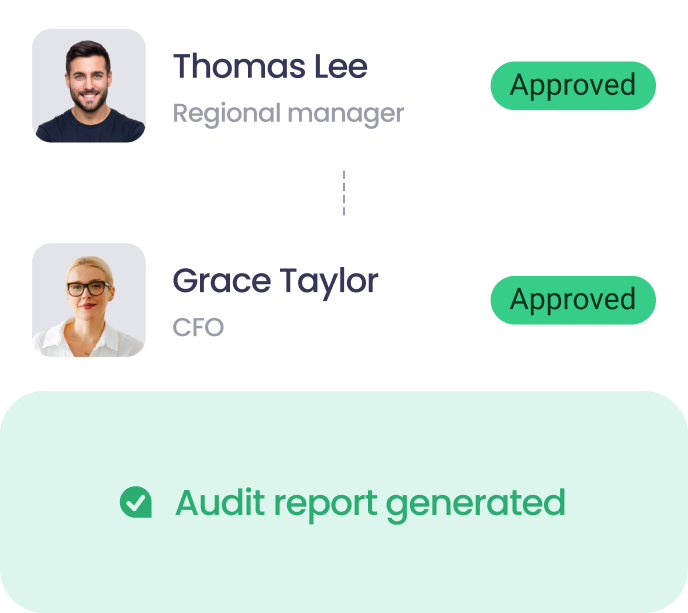
Growing from Xero or QBO to NetSuite? Why you should build a ladder
For many businesses, there comes a time when your existing technology simply isn’t enough. What worked well in the beginning might not last you to the next stage of your business journey.
It starts with small gaps, team members creating workarounds and haphazardly meshing spreadsheets with email systems to plug what they can. But eventually, this doesn’t cut it – and isn’t best practice.
Imagine you start your own cafe, a beautiful sunny space that locals quickly come to love for a morning coffee, takeaway croissant or leisurely weekend lunch. Over time, this success translates into growth; you open two, then three, then suddenly you have five outposts across the city.
Customers start asking if they can buy your in-house roasted coffee beans to make their own coffee at home. As this part of the business expands, you’re dealing with more complex manufacturing and retail processes across a number of entities.
Somewhere along all of this, you realise that your existing cloud-accounting tool, Xero, can’t keep up. It still has the powerful accounting capabilities you need and an easy-to-use interface, but struggles with the rest of what you need.
Suddenly, cracks are appearing:
- You're asked about cash flow across all locations in a meeting and realise you don't have a clear answer.
- Your finance manager doesn't have time to analyse the financial performance of the group, as they are consumed by the manual process of consolidating and reconciling five separate Xero or QuickBooks Online files each month.
- A key supplier threatens to put you on credit hold because their invoice has been sitting in someone's email for three weeks, lost in an informal approval chain.
- You're making expansion decisions based on gut feeling rather than real-time profitability data because getting accurate numbers takes too long.
Ideally, you’d have full visibility across entities and their financial operations, including everything from cash flow to spend tracking and approvals, all in real-time. This would give you the right intel to manage the business day-to-day and plan for future growth.
You’ve thought about NetSuite, but there are a few things holding you back. The cost and time involved, but mostly that it feels like a huge leap.
It seems as though there are two options:
- Stay with Xero or QuickBooks Online
While the team would enjoy the same functionality they’re used to, you’d increasingly need to find workarounds for capabilities not found in the platform – like scheduling, multi-entity reporting and workflows. Over time, errors would happen more often, like duplicate payments, missed approvals and inconsistent coding across entities, impacting cash flow, visibility and wasting huge amounts of time. Your team would spend more time working outside of the system in ad-hoc workflows, like complex spreadsheets, or using other technology tools to carry the load. - Move to NetSuite
This would bring the extra functionality a business needs, but it might take a big outlay of cash (both for software licensing and implementation) and many months to get up and running. Once live, the team would need training to get up to speed and comfortable using the new tool. You might not have the time or resources free to dedicate to getting this right. Even if you did switch, you’d still have to continue using your existing system while going through the implementation.
The third option: Build your own ladder
Beyond the two obvious options – staying with your GL or moving to NetSuite – there’s a third (and often better) option: building a ladder in between.
Modern app ecosystems mean businesses now have access to a wide range of tools that plug straight into their accounting system to add extra functionality.
This keeps Xero or QuickBooks Online as your core general ledger, but adds the functionality you need via apps that integrate directly into your system of record.
In many ways, this is the best of both worlds: you get extra functionality while still retaining Xero or QuickBooks Online. While there might be extra training to use some of these apps – like setting up and using ApprovalMax – it’s easier than a full ERP implementation.
These tools often allow you to manage certain functionalities, like approvals, outside of your GL, limiting access to sensitive data while offering a smoother experience for non-finance team members.
This option has been linked to stronger business results; Xero found SMBs which use ecosystem apps grow revenue 30% faster. The more apps a business uses, the more they typically see the benefits; the research also found highly-digitised businesses which use five or more apps see much stronger growth than those which don’t.
Stepping off the top rung
When the time comes, many businesses will still consider scaling up to NetSuite. There are limitations many may reach when expanding internationally, for example, and juggling multiple entities across locations in multiple currencies. When that happens, tools like ApprovalMax can make the journey across with you, offering the same functionality while plugging into your new system of record.
Building your way there allows you to find the approach that fits your business where it is now and in the near future, so if and when the time comes to move to a complete ERP you can dedicate the time and energy into getting it right.
This is especially critical given half of large IT projects go massively over budget, according to McKinsey – on average, they go 45% over budget and 7% over time, while delivering 56% less value than predicted. Software projects run the highest risk of these overruns.
Reaching new heights
The good news? Businesses don’t have to make a huge leap. Instead, they can keep adding the functionality they need, step by step, until they have a strong ladder to reach new heights and go exactly where they need to.
Sometimes, staying down on the ground can keep you there forever. Adding these extra rungs, whether through improved financial processes, reporting or automation, can actually give your business the visibility and strategic capability it needs to grow to that next level – in due time and without the risk.
Ready to start building your ladder? Find out how ApprovalMax can be your first step, adding approval workflows that connect right into Xero or QBO.
Ready to simplify your approval process?
Konstantin Bredyuk, co-founder of ApprovalMax, began his entrepreneurial journey in 2016 to help SMBs scale faster. Driven by a mission to help businesses build strong financial controls, he leads by example, proudly propelling ApprovalMax’s growth with dedication and hands-on leadership.
Set up a system of checks and balances for your financial operations.
Multi-step, multi-role approval workflows for financial documents.

Auto-generated audit reports for each approved item.

Get alerts for fraudulent activity and protect against it happening.
Leave printing in the past with fully digitised workflows.



